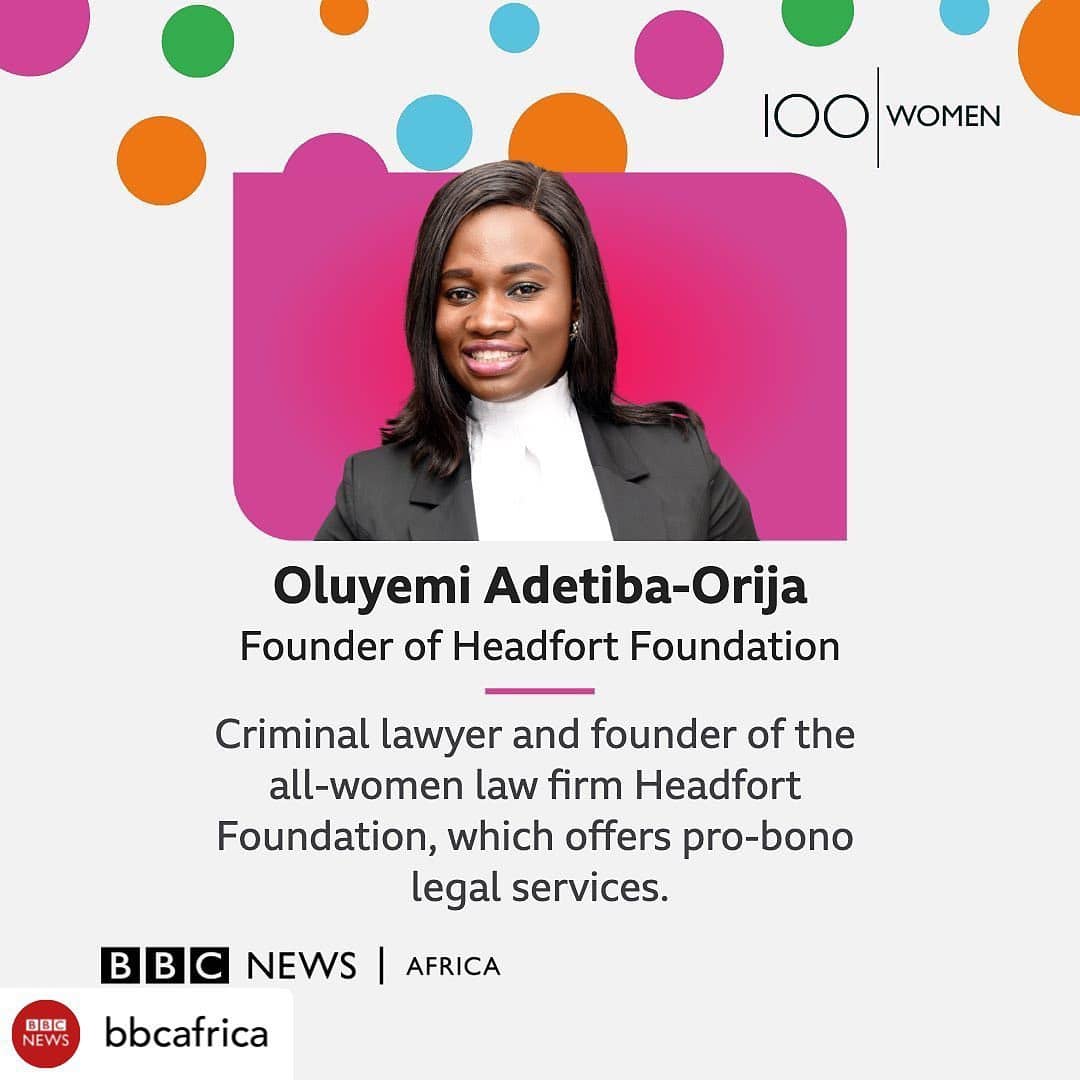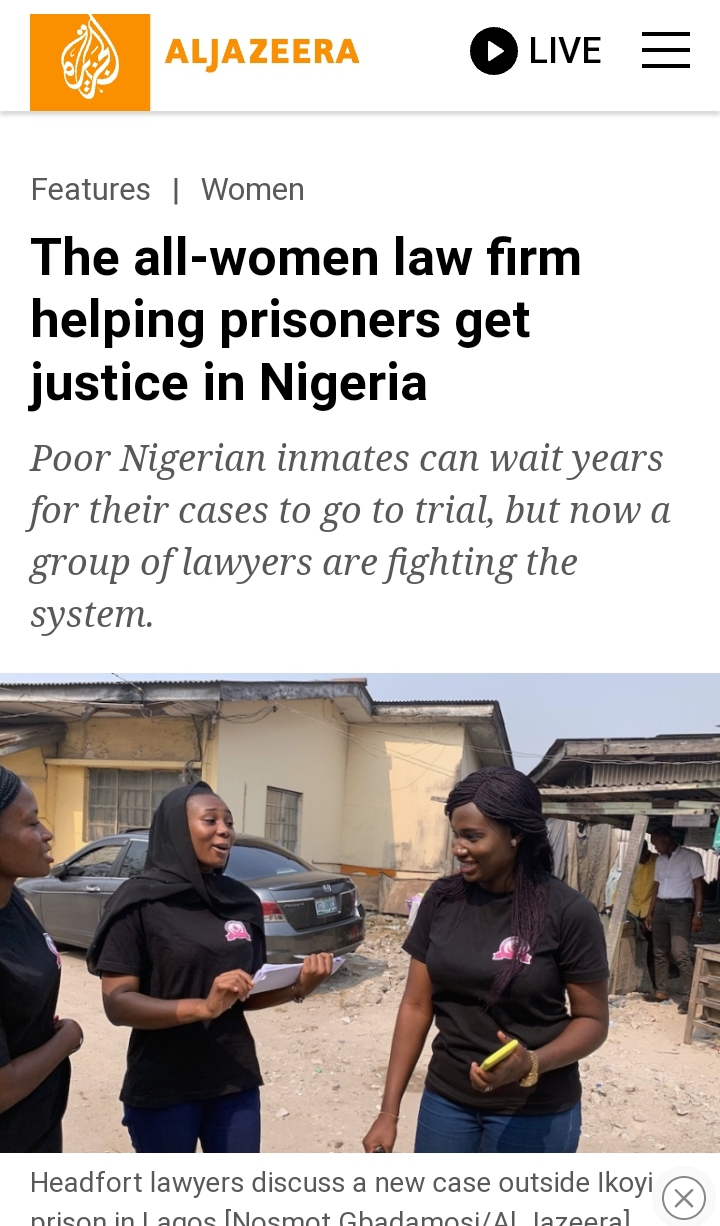 Blog Post
Blog Post
T The term ‘INMATE’ refers to anyone who is confined in a custodial centre and so has been deprived of his liberty or freedom because he is either on trial or serving a sentence in a correctional facility. Section 46 of the Nigerian Correctional Service Act 2019 defines an inmate as any person lawfully committed to custody. Historically, inmates formerly referred to as prisoners were once considered to be slaves of the states who had no rights in confinement. This was the policy traceable to the ‘Hands-off Doctrine’ which stated that American Courts are not to get involved in prison administration especially when the rights of inmates are violated until the court in the case of Talley v. Stephens (1965) overturned the doctrine.
Another policy of the correctional system was founded on the concept of ‘Less Eligibility’ which stated that if imprisonment is to act as a deterrent, inmates should not live at a level of luxury far above the poor in the society. This is understandable because people might be tempted to engage in more crime just to enjoy prison facilities. However, the courts have held that inmates do have fewer rights than free citizens because restriction of rights in prisons for security reasons. On this premise, Correctional Centres have considerable discretion to decide what restrictions should be placed on inmates as was so held in the case of Jones v. North Carolina Prisoners’ Labour Union (1977). It should be noted that the the general impression is that since the Correctional Centre is a place of punishment, inmates are supposed to live a life of deprivation and degradation in custody until they get their freedom.
Framework for Rights of Inmates
The Legal Framework for the rights of inmates is governed by the Nigerian Correctional Service (NCS) Act 2019 and in line with one of its objectives to ensure compliance with international human rights and good correctional practices, the Correctional in Nigeria has adopted the ‘UN Standard Minimum Rules for the Treatment of Prisoners’ also known as ‘The Nelson Mandela Rules 2015 and the ‘UN Standard Minimum Rules for the Treatment of Female Offenders’ popularly referred to as ‘The Bangkok Rules, 2010, as well as other international human rights instruments such as the ‘Basic Principles for the Treatment of Prisoners 1990’ which provides that, all inmates shall retain their human rights such as the right to take part in cultural activities and education.
The NCS Act further mandates the Correctional Centre to take custody of all persons legally confined with them;
to provide safe, secure and humane custody for inmates,
identify the existence and causes of anti-social behaviour of inmates,
convey remand persons to and from courts,
develop correctional treatment and implement programmes for inmates reformation,
rehabilitation and re-integration so that they can be useful when they get back into society
ensure the unconvicted inmate is produced in court,
provide support to facilitate the speedy disposal of cases of persons awaiting trial,
help with initiating behaviour modifications in inmates through the provision of medical, psychological, mental health, spiritual and counselling services,
provide opportunities for education and vocational training in modern farming and animal husbandry techniques.
The NCS Act also states that the Correctional Centre shall provide healthcare and medical services to sick inmates and those with unsound mind (Festus Odafe & Ors v. AG & Ors (2004)); control the outbreak of diseases, look into the quantity and quality of their food, hygiene, sanitation, lighting and ventilation, suitability and cleanliness of their clothing and beddings; there shall be no torture, bullying, sexual and non-sexual violence; no slavery or servitude, inhumane and any degrading treatment against inmates while an inquest shall be instituted in all cases of deaths in custody to ascertain the cause of death of any inmate. For female inmates, including pregnant women and nursing mothers, the Correctional Centre must ensure that their special needs are met such as giving them medical care and support. Essentially, the grievances of inmates should be generally addressed by the Correctional Centres.
Duties of Inmates
Since an inmate is in the legal custody of a custodial centre, he should subject himself to the discipline and regulations of the Correctional Facility. An inmate shall not attempt to escape from lawful custody. He should do his assigned job, take part in prison education programmes, perform assigned labour and keep his environment clean. After all, he will be entitled to a certificate of good behaviour upon discharge from custody.
References
Prison Madness. <https://www.utne.com/community.prison/> accessed 20 January 2023
Prisoner Rights <https://www.cliffsnotes.com/study/ > accessed 20 January 2023
...



























